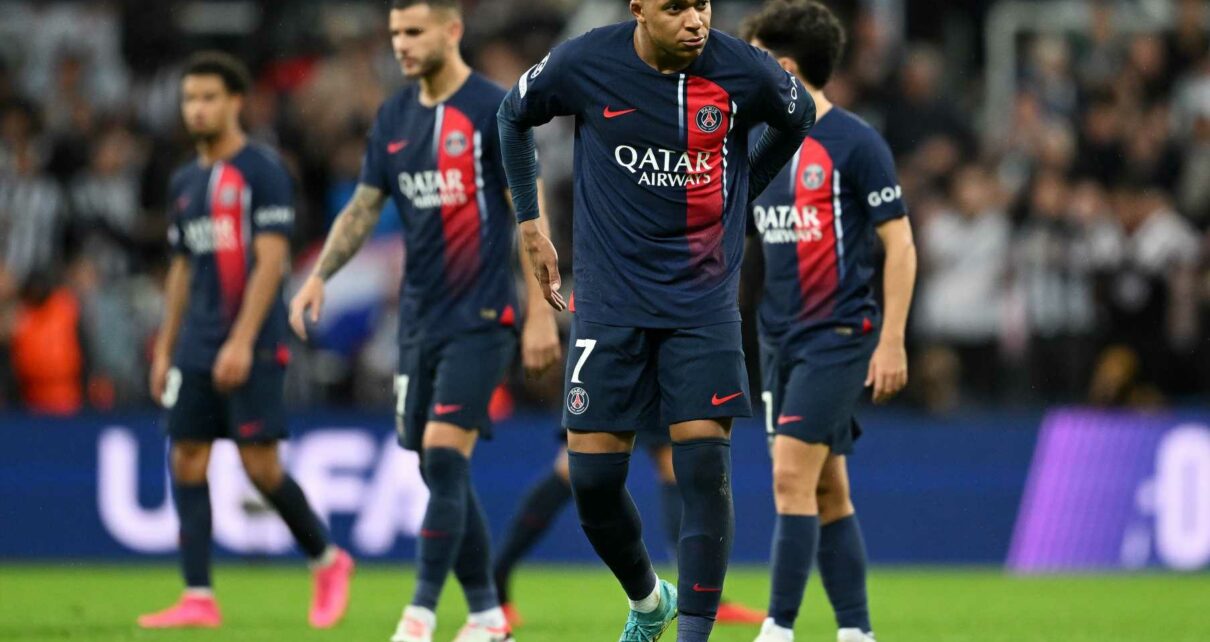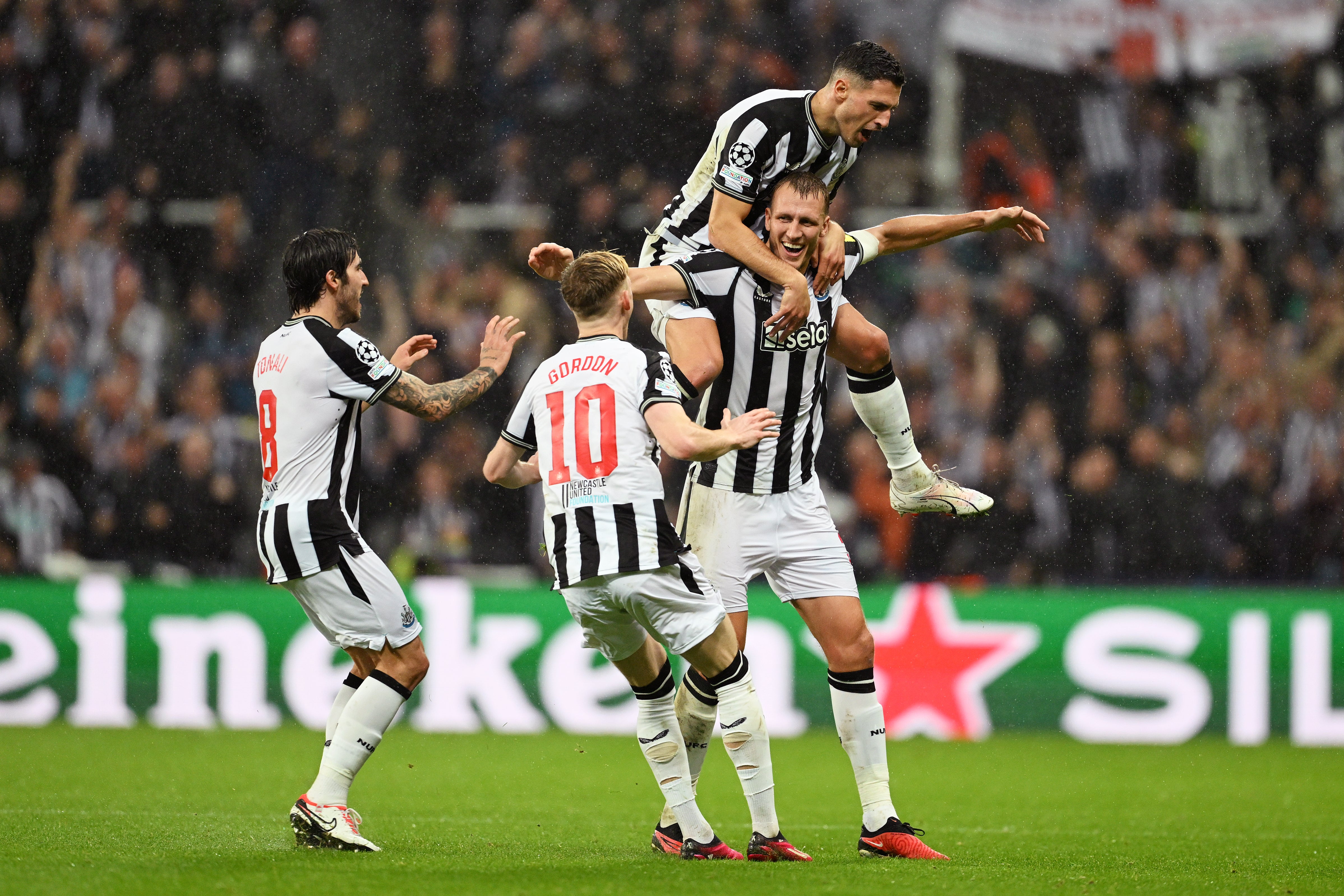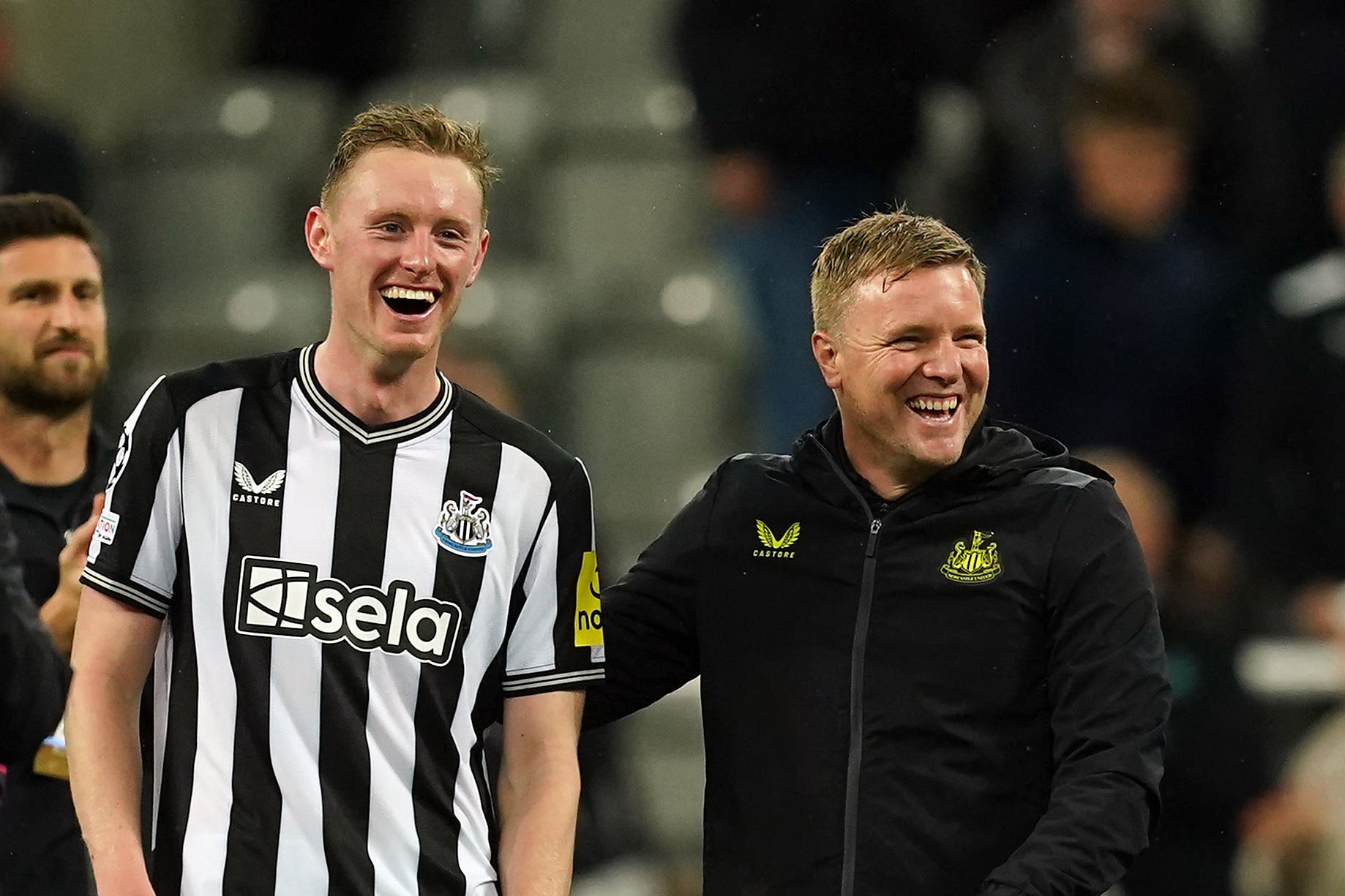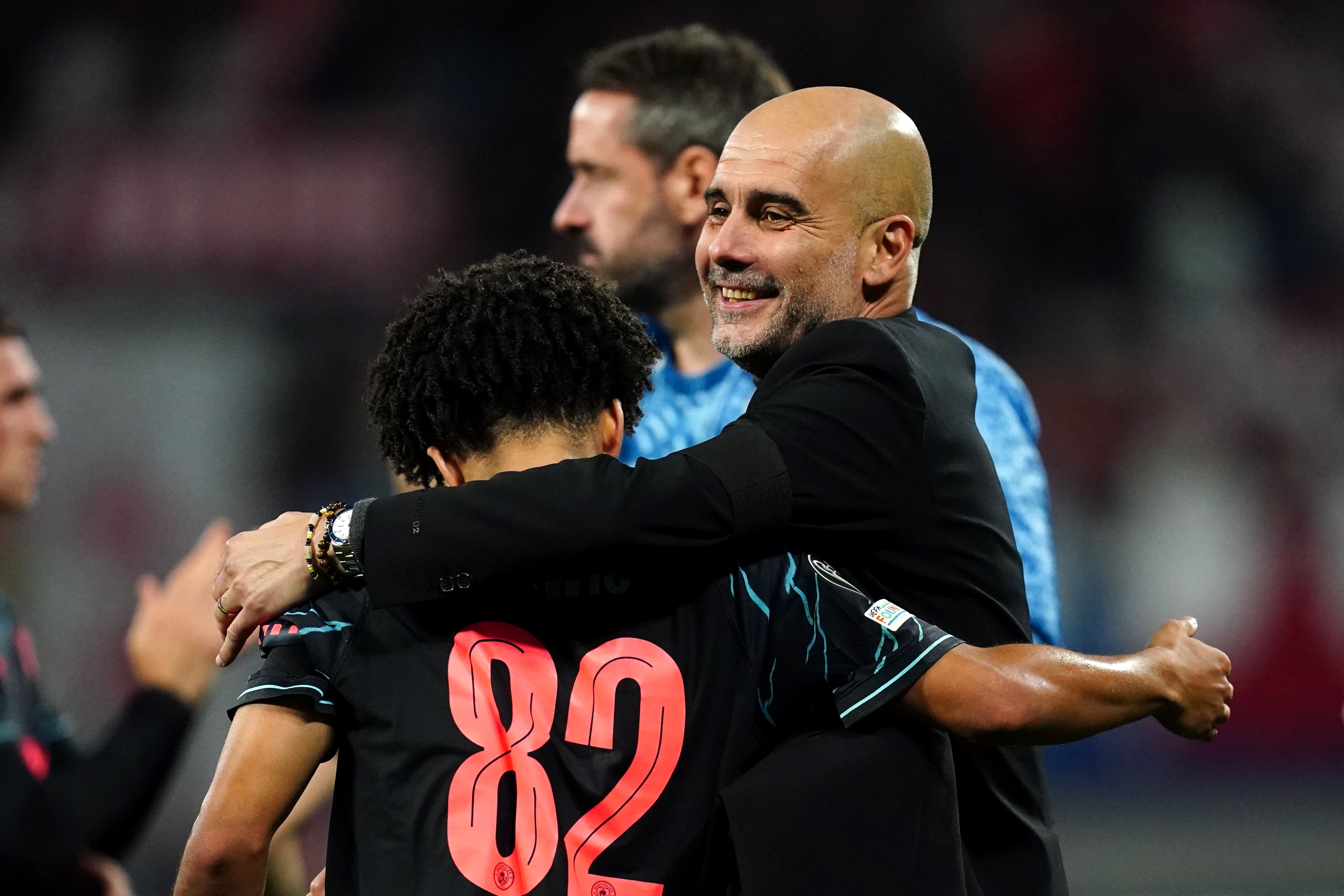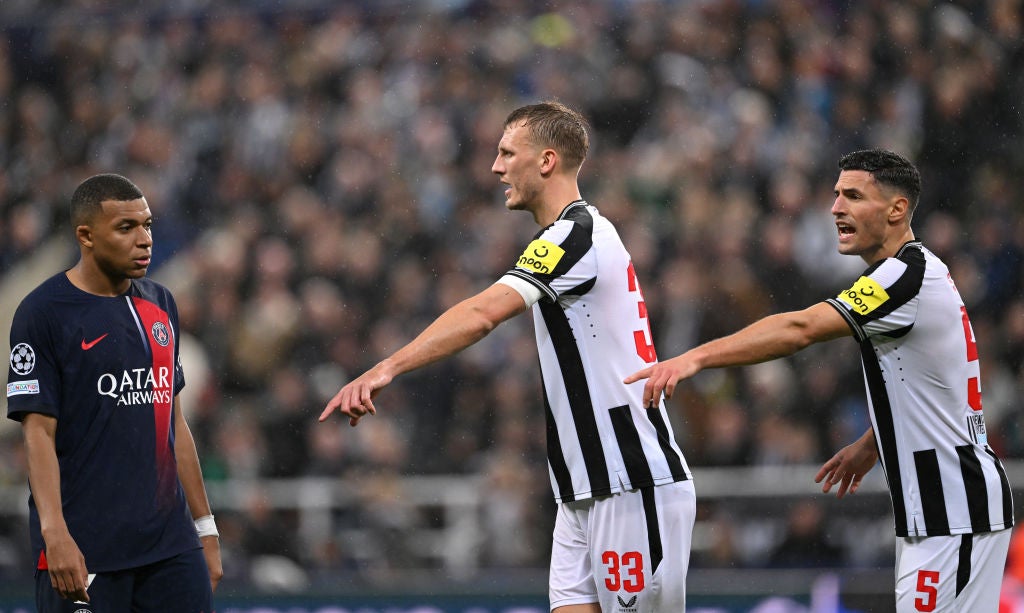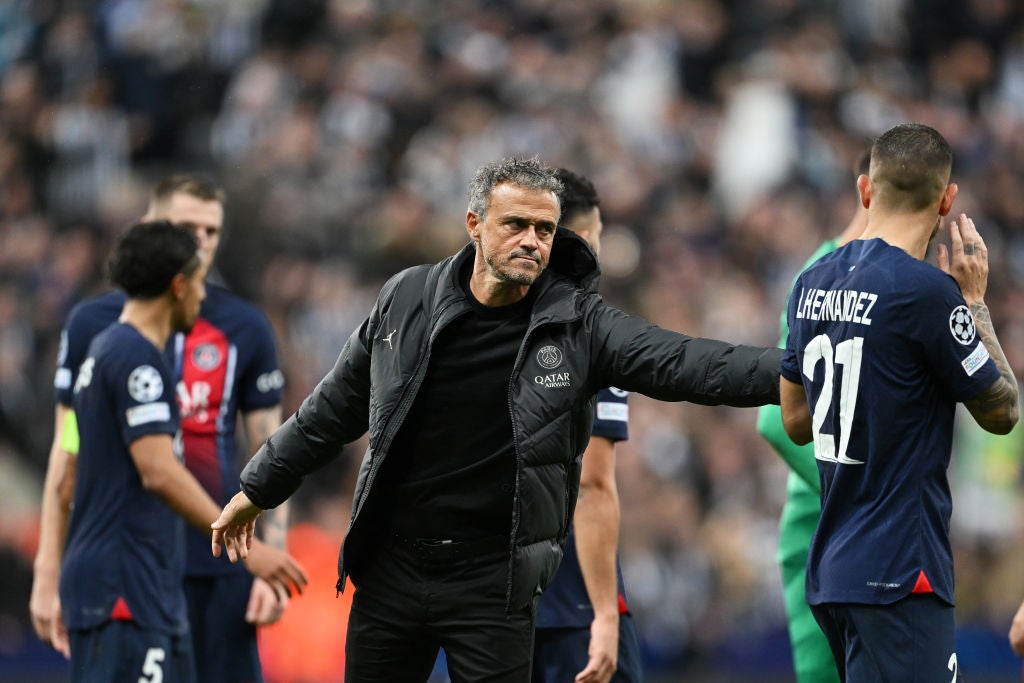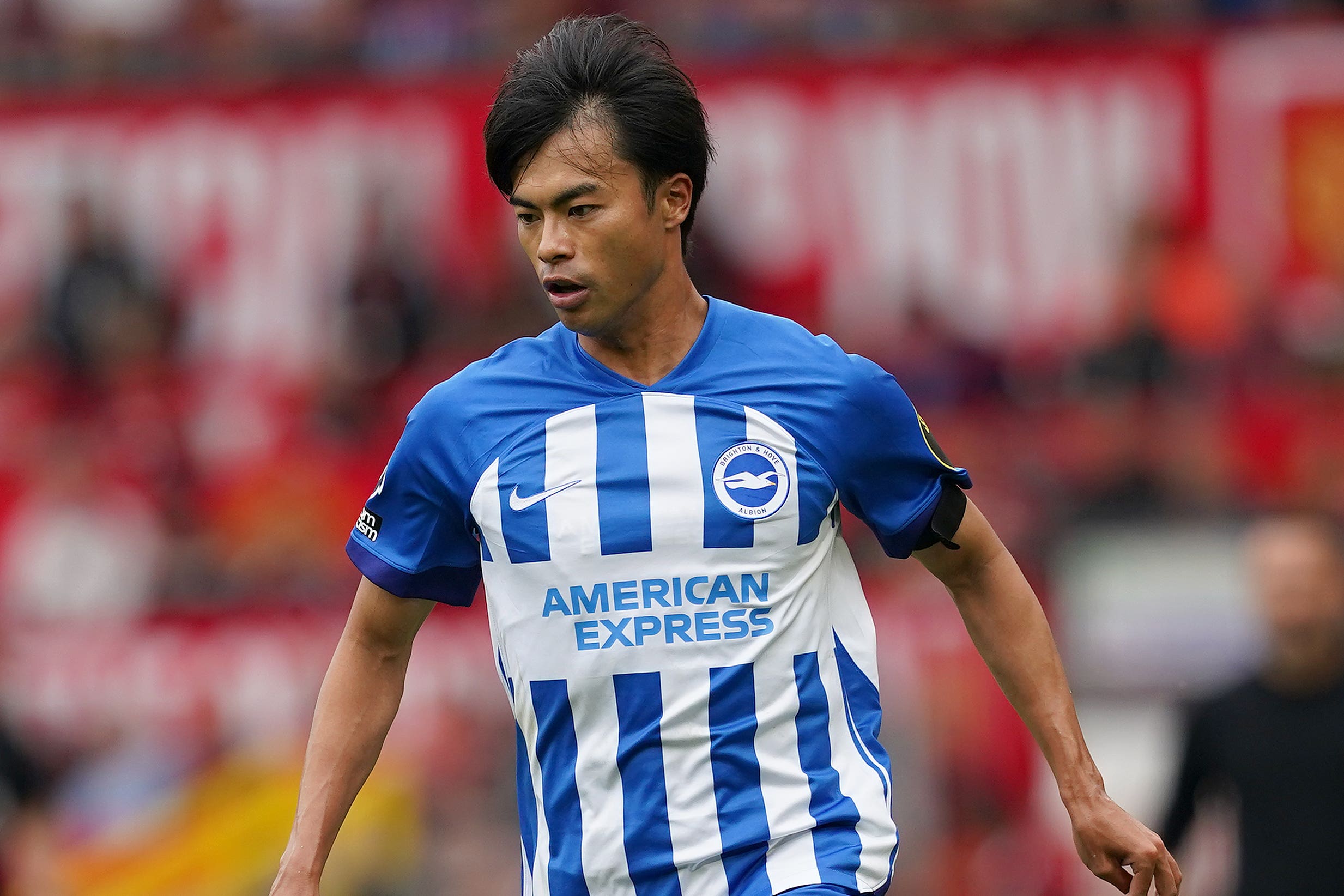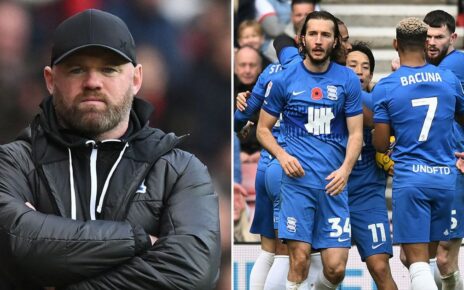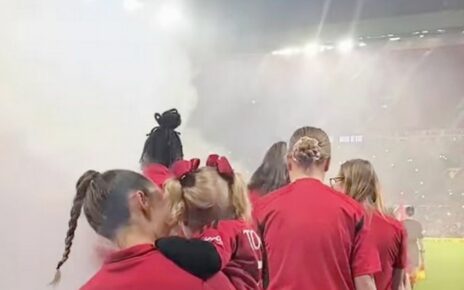Sign up to Miguel Delaney’s Reading the Game newsletter sent straight to your inbox for free
Sign up to Miguel’s Delaney’s free weekly newsletter
Thanks for signing up to the
Football email
There was something almost sullen about the look, the hands that had been gesturing in frustration with great regularity instead planted in his pockets. Luis Enrique mooched off the St James’ Park pitch, perhaps with the dubious distinction of being on the losing side for each of Newcastle’s greatest Champions League nights; a player for Barcelona in 1997, a manager for Paris Saint-Germain in 2023.
Arguably PSG have known worse. Ignominy has been a regular companion in a decade where humiliations have come all too frequently, when many of their European exits have been harrowing, when expensive ambition has never been realised. One group stage game, in a pool where they still occupy second place, could become a footnote. Autumn on Tyneside was painful but springtime in Paris tends to be worse, with PSG’s annual ejection from the knockout stages.
But they tend to be expelled by the established order, by Barcelona and Bayern Munich, by Real Madrid and the Manchester clubs. Newcastle may have spent some £400m since their takeover but they are the newer of the nouveaux riches, the arrivistes who were supposed to discover that money isn’t enough in the Champions League.
But Newcastle were a team. They were running machines.
Recommended
When Luis Enrique went for ultra-bold tactics and fielded a turbo-charged front four, the sense was that each of Kylian Mbappe, Randal Kolo Muani, Goncalo Ramos and Ousmane Dembele would win a race against his immediate opponent with something to spare. Yet the sprinters in attack were spectators, sidelined as PSG’s manager left his side undermanned in midfield; precocious as Warren Zaire-Emery, his best player on the night, is, he could not do the work of three men.
“We played the same system throughout the game,” Luis Enrique said; it was not an explanation or a justification, but may have been an indictment. It didn’t work and he didn’t change it.
It was a new twist on a familiar theme. Playing in midfield in Europe has long been a thankless task for PSG. It used to be because the front three did not track back. Even after the most glamorously unsuccessful forward line in history were broken up, with Neymar and Lionel Messi leaving, PSG’s addiction to expensive attackers was such that they fielded a quartet with a combined cost of over £300m. They were up against a Newcastle back four who cost little over £30m. Two of the Newcastle defenders scored. None of the PSG forwards did.
Such things happen to PSG in the Champions League. It may be a sign that Ligue Un leaves them ill-prepared for stiffer tests. Even with younger legs than last season, they were unable to cope with Newcastle’s intensity. Mistakes abounded, most obviously from Marquinhos for Miguel Almiron’s opener. PSG were harried into them, giving the ball away with wanton ease and a lack of care. It may not have helped that their best passer, Marco Verratti, was bombed out to Qatar.
The faces changed in a summer reboot. Some of the themes may not have done. Luis Enrique found his team’s character questioned. “I thought my players’ attitude was good throughout the game; perhaps you were looking at a different game,” he responded tartly. But the hunger was more evident in Newcastle.
Part of the paradox in PSG over recent years has been that they have kept appointing managers who want to prioritise the team over the individual, in Thomas Tuchel, Mauricio Pochettino and Luis Enrique, and are yet to shed their reputation as the home of the Galactico. They are yet to get the balance of a side right. Maybe it is not as simple as parting company with Messi and Neymar. In Luis Enrique’s defence, he is only a couple of months into an attempt at a cultural reset. Judging him after nine games of his reign feels unfair.
Judging the PSG project a dozen years into their ownership, however, is not. There have been nine Ligue Un titles but there still seems an inner emptiness that has manifested itself in underachievement on the European stage. It is more than a decade since Time Magazine branded England “the world’s most disappointing side”. The temptation is to say PSG took that mantle several years ago, except that many are not disappointed by their stumbles in Europe.
A 4-1 shellacking on Tyneside wasn’t proof they will continue, but it was an indication it might. Is the ethos different now?
Recommended
Even in going younger, more French, for players with fewer medals, they still committed the best part of £300m to signings in the summer. Meanwhile, there was a comparison with another club that came into wealth, which had team spirit and a side that felt greater than the sum of its very different parts: Newcastle.
For PSG, with six summer signings starting, the personnel had changed in a summer overhaul, but the question of how to turn expenditure and ambition, talent and transfer fees into European glory remains fiendishly difficult for them to answer. They looked to localism and lost to locals, with goals from Dan Burn and Sean Longstaff. Maybe, when PSG added Parisians, they really needed Geordies.
Source: Read Full Article
